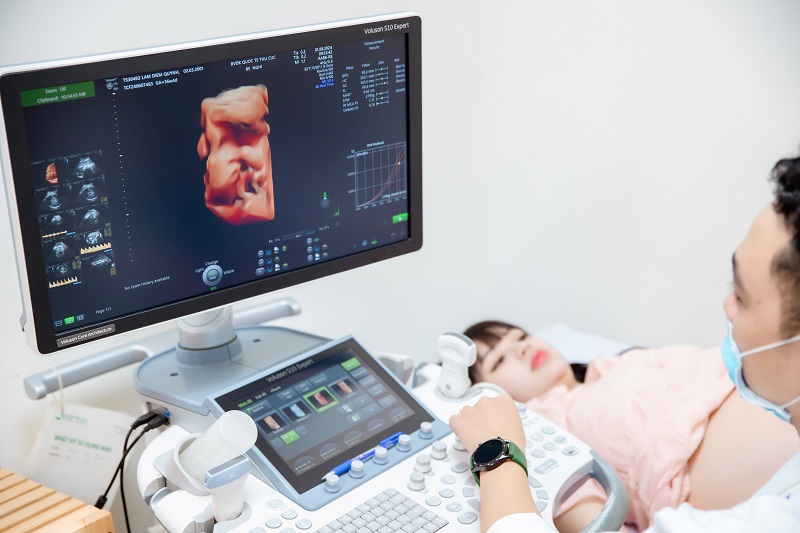Prenatal ultrasound is one of the most common and vital tools used to monitor pregnancies. For many expectant mothers, it is not only a necessary medical procedure but also an emotional experience—the first glimpse of their baby. This article provides detailed information about prenatal ultrasounds, helping you prepare for your appointments and understand the process.
1. What is a Prenatal Ultrasound?
A prenatal ultrasound is a non-invasive diagnostic imaging technique that uses high-frequency sound waves to produce images of the fetus and the mother’s reproductive organs. It is a safe, painless method widely used throughout pregnancy monitoring.
During the procedure, a device called a transducer emits sound waves, which bounce off internal tissues and organs. These echoes are converted into images displayed on a monitor.
There are two primary types of ultrasound:
– Transabdominal Ultrasound: The most common method, performed by moving the transducer over the mother’s abdomen.
– Transvaginal Ultrasound: Involves inserting a small transducer into the vagina, typically used in early pregnancy or when more detailed images are required.

Prenatal ultrasound is commonly used by doctors to assess the condition of the fetus.
2. When and Why Are Ultrasounds Performed?
Prenatal ultrasounds provide numerous benefits, including confirming pregnancy, estimating due dates, detecting fetal anomalies or complications, and assessing fetal growth, placenta placement, amniotic fluid levels, and maternal uterine or ovarian health.
Below are key milestones for ultrasound scans during pregnancy:
– Weeks 6–8: Confirms pregnancy, determines the gestational sac’s location, counts the number of fetuses, and identifies the fetal heartbeat.
– Weeks 11–13: A 5D ultrasound is recommended to screen for congenital abnormalities, measure nuchal translucency, and predict the due date.
– Weeks 15–16: Early detection of fetal movement. This stage can help identify neurological issues like hydrocephalus or ventricular dilation.
– Weeks 18–22: A detailed examination of fetal anatomy, including the lungs, heart, liver, digestive system, and spine, to identify any structural anomalies.
– Weeks 24–28: Evaluates fetal growth, combined with maternal tests for gestational diabetes and nutritional adjustments.
– Weeks 32–36: Monitors fetal development, positioning, and amniotic fluid levels.
– After week 36, weekly ultrasounds are recommended to closely monitor fetal heart rate, amniotic fluid levels, and overall readiness for delivery.
3. Preparing for Your Ultrasound
Proper preparation ensures accurate results. Here are some tips for expectant mothers:
– Before the Scan: Drink water to fill your bladder if undergoing a transabdominal ultrasound, as this improves image clarity. Wear comfortable clothing that allows easy access to your abdomen. Prepare any questions for the doctor.
– During the Procedure: You will lie on an examination table while gel is applied to your abdomen to enhance sound wave transmission. The transducer is then moved over the area to capture images. The doctor may explain key findings during the scan. Afterward, you can clean off the gel and dress.
– Interpreting Results: The doctor will review measurements such as crown-rump length, biparietal diameter, fetal heart rate, and amniotic fluid index. You will also be advised on placenta location, fetal organ development, and overall growth. Based on the findings, the doctor may recommend additional tests or provide guidance on nutrition and prenatal care.

Expectant mothers undergo prenatal ultrasounds at TCI.
4. Key Considerations for Prenatal Ultrasound
Ultrasound is considered safe for both mother and baby. However, it has limitations and may not detect all fetal health issues. Certain conditions might only become apparent after birth. Therefore, it is essential to follow the Ministry of Health’s recommended prenatal checkup schedule.
Today’s ultrasound technology ranges from 2D to 5D imaging. At Thu Cuc TCI, a combination of 2D and 5D ultrasounds is often used to monitor fetal development and screen for potential abnormalities. With a comprehensive maternity care package, mothers receive timely reminders for each critical checkup, ensuring they never miss an appointment.

TCI performs 5D ultrasounds at key milestones to accurately screen for fetal abnormalities.
Prenatal ultrasound is an invaluable tool for assessing fetal development and maternal health. By understanding the process, expectant mothers can feel more confident and prepared for each appointment. Discuss any concerns or questions with your healthcare provider to ensure a safe and healthy pregnancy journey.








